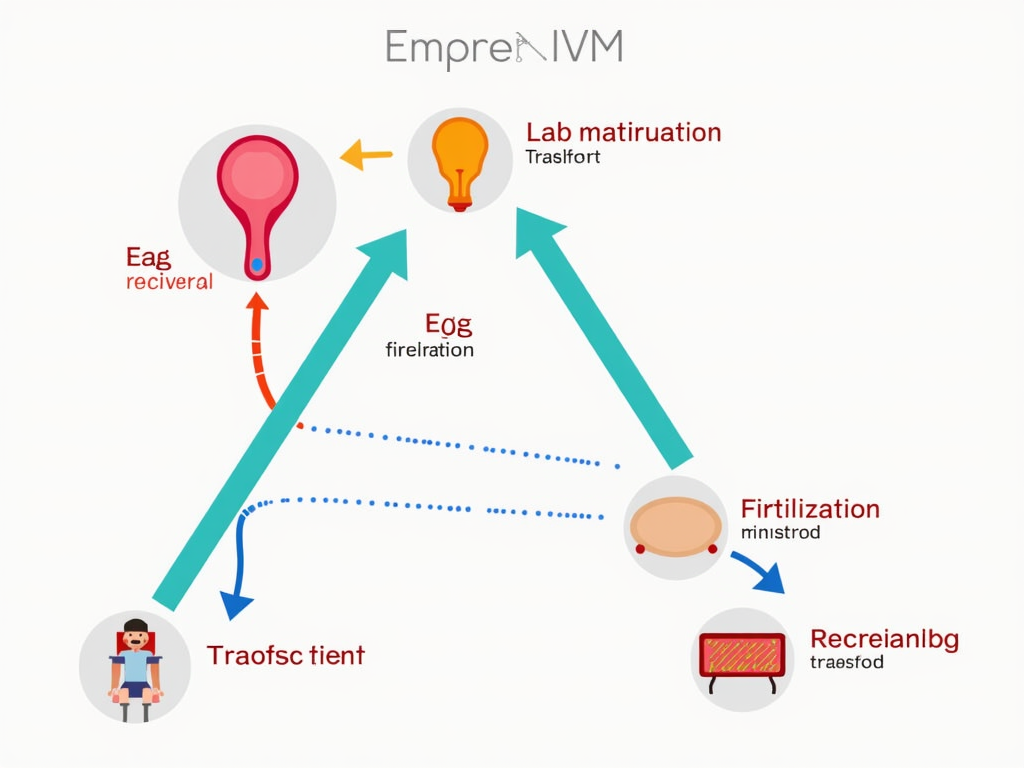In Vitro Maturation for PCOS Patients: A Comprehensive Guide
April 11, 2025, 5:23 p.m.
In vitro maturation (IVM) is a groundbreaking fertility treatment that brings hope to women with polycystic ovary syndrome (PCOS). Unlike traditional in vitro fertilization (IVF), IVM collects immature eggs and matures them in a lab, lowering the risk of ovarian hyperstimulation syndrome (OHSS)—a major issue for PCOS patients. This article explores IVM’s benefits, process, and real stories.

What is In Vitro Maturation (IVM)?
In vitro maturation, or IVM, is a fertility treatment where doctors retrieve immature eggs from the ovaries and mature them in a lab before fertilizing them. Unlike in vitro fertilization (IVF), which uses heavy hormone doses to mature eggs inside the body, IVM skips most of those drugs. This makes it gentler on the body.
Here’s how it stands out: - Less Medication: IVM uses little to no hormone shots. - Lab-Based Maturation: Eggs mature outside the body in a controlled setting. - Simpler Process: It avoids the intense stimulation IVF requires.
Why IVM Helps PCOS Patients
PCOS affects about 1 in 10 women, often causing irregular periods and infertility. For these women, traditional IVF can be risky because their ovaries overreact to fertility drugs, leading to OHSS. This condition causes swollen, painful ovaries and can be dangerous.
IVM changes the game for PCOS patients by: - Reducing OHSS Risk: Fewer drugs mean less chance of overstimulation. - Easing Physical Strain: You avoid weeks of injections. - Saving Money: Less medication and monitoring cut costs.
A report from the American Society for Reproductive Medicine shows IVM works well for PCOS patients, with pregnancy rates close to IVF in some cases.

How IVM Works: Step by Step
The IVM process is straightforward and less invasive than IVF. Here’s what happens:
- Light Stimulation (If Any): You might get a few days of mild hormones—or none at all.
- Egg Collection: Doctors use a small needle to retrieve immature eggs.
- Lab Maturation: Eggs mature in a special solution for 24-48 hours.
- Fertilization: Mature eggs are combined with sperm in the lab.
- Embryo Transfer: Healthy embryos go into the uterus after a few days.
This takes less time and effort than IVF, making it a smoother ride for many.
Real Stories: IVM in Action
IVM has changed lives for PCOS patients. Meet Emily, a 29-year-old who faced infertility for years. After OHSS sidelined her first IVF attempt, she tried IVM.
“IVM felt like a fresh start. No constant shots, no scary side effects. Nine months later, I had my son.” — Emily, IVM Patient
Emily’s story shows how IVM can offer a safer path to parenthood.

Success Rates and What to Know
IVM’s success varies, but it’s promising. The European Society of Human Reproduction and Embryology reports pregnancy rates of 30-40% per cycle for PCOS patients with IVM, compared to 40-50% with IVF. While slightly lower, IVM’s safety makes it worth considering.
| Factor | Impact on Success |
|---|---|
| Age | Younger = better odds |
| Egg Quality | Key to maturation |
| Clinic Skill | Experience matters |
Choosing a skilled clinic boosts your chances.
Is IVM Right for You?
Wondering if in vitro maturation fits your needs? It’s a great option if: - You’ve had OHSS before. - You want fewer drugs and appointments. - Cost is a concern.
But it’s not for everyone. If your egg count is low, IVF might work better. Talk to a fertility doctor to weigh your options.

Risks and Considerations
IVM is safe for most, but it’s not perfect. Fewer eggs might mature compared to IVF, and success isn’t guaranteed. Still, for PCOS patients, the lower OHSS risk often outweighs these concerns. Discuss any worries—like egg quality or past fertility struggles—with your doctor.
Tips for Your IVM Journey
Ready to try IVM? Here’s how to prepare: - Find a Specialist: Look for clinics with IVM experience. - Ask Questions: Clarify the process and costs upfront. - Stay Positive: Stress less with this gentler approach.
Taking these steps can make your experience smoother and more successful.

Wrapping Up: IVM as a PCOS Solution
In vitro maturation for PCOS patients offers a safer, simpler way to tackle infertility. It skips the heavy drugs of IVF, lowers risks like OHSS, and still delivers solid results. If PCOS has made your fertility journey tough, IVM might be your answer. Chat with a specialist and explore the recommended readings below for more.